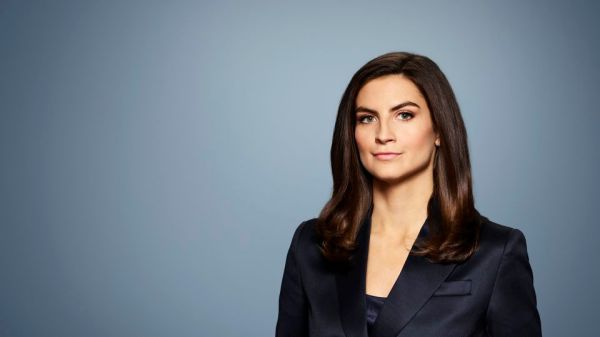
As the host of CNN’s The Source, it’s only appropriate that Kaitlan Collins has regularly been a source of Donald Trump‘s ire. In 2018, the Alabama-born journalist was famously barred from a Rose Garden press conference after Trump administration officials objected to her line of questioning during an Oval Office event with the then-president.
Five years later, Collins once again put Trump on the spot while hosting a chaotic 2023 town hall. After repeatedly pressing the Republican presidential candidate on such subjects as his guilty verdict in E. Jean Carroll‘s lawsuit and his false claims about the legitimacy of the 2020 election, Trump lashed out and called her a “nasty person.”
As the Dude might say, that’s just, like, your opinion, man. While Trump has been campaigning for his old job back, Collins’ career continues to thrive at CNN. Two months after that town hall, The Source made its primetime debut in the heavy-hitting 9 p.m. ET timeslot, opposite Hannity on Fox News and—depending on the day—The Rachel Maddow Show or Alex Wagner Tonight on MSNBC.
In the latest edition of TVNewser’s “5 Questions For…” series, Collins shares her strategies for town hall hosting duty and reveals how she crafts questions that can get under a former president’s skin.
1. We’ve seen both Kamala Harris and Donald Trump take part in multiple town halls this election cycle. That’s often a very different environment—as well as a different format—than a traditional interview. What are the three rules you follow when hosting a town hall?
A town hall is different than a one-on-one interview or a debate. It’s a chance to see these candidates interact directly with voters. You can read much more into it than just the candidate’s answers—do they remember the voter’s name? Do they empathize with them if they share a personal story? Do they really try to connect?
I think as we saw with Vice President Harris’s latest town hall with CNN, it’s often the simplest questions from voters that can be so insightful, like when she was asked to name a weakness. Former president Trump meanwhile has come face-to-face with women who care about Roe v. Wade being overturned. I think as the moderator, you want to have sharp follow-ups if they don’t answer the voter, let the voters do most of the talking and be prepared for any scenario.
2. You started your career as a political reporter largely focused on the White House and domestic politics but have steadily expanded into international coverage. Which country’s political scene do you find the most similar to America’s, and which country’s is the most different?
To cover U.S. politics, it’s important to pay attention to international politics. We can often see trends playing out abroad before they happen here at home. I always find it interesting to watch what’s happening in the UK, for example. I’m not sure you can really compare our current election with anything else, though. I was just in Israel and I was constantly asked who I thought was going to win the US election. (Hint: I don’t know!)

